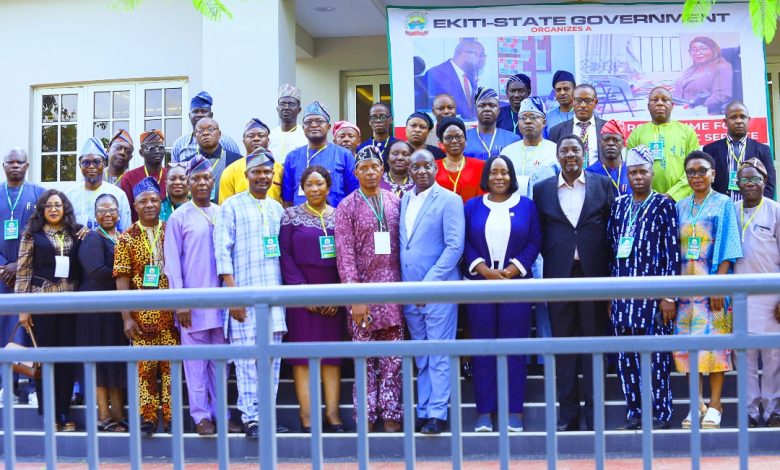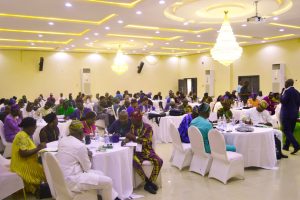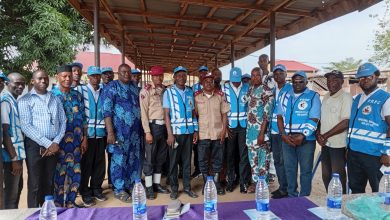Ekiti Government Hosts 2-Day Training for Accounting Officers to Enhance Service Delivery

The Ekiti State Government has held a two-day induction and training programme for Accounting Officers in the State Public and Civil Service, aimed at strengthening professionalism, service delivery, and ethical leadership.

The programme, themed “Enhancing Soft Skills for Service Delivery and Professional Growth,” took place on 11th and 12th November 2025 at the Ikogosi Warm Springs Resort, Ikogosi-Ekiti. It was facilitated by Deloitte Consulting in collaboration with Ekiti State Government (EKSG) Consultants.

Eighty Accounting Officers—including ten newly appointed Permanent Secretaries—participated in the intensive sessions, which focused on “learning, unlearning, and re-learning” critical soft skills needed for effective governance.

The carefully curated curriculum covered essential areas such as:
• Effective Communication and Change Management
• Leadership and Management
• Civil Service Rules and Procedures
• Personnel Management
• Policy Implementation
• Corruption and Fraud Prevention
• Investigation and Prosecution of Corrupt Practices
• Mental Health and Work-Life Balance
The sessions featured presentations, case studies, simulations, group tasks, and peer learning, taking officers beyond their comfort zones and exposing them to new perspectives for improved performance.

Declaring the programme open, the Secretary to the State Government, Prof. Habibat Adubiaro, commended Governor Biodun Abayomi Oyebanji for prioritizing human capital development. She reminded participants of their pivotal role in sustaining administrative efficiency and financial discipline across government operations.
“As Accounting Officers, you are the custodians of administrative efficiency, financial discipline, and institutional integrity,” she said. “The way you perform your duties reflects directly on the image of this administration.”


In her leadership charge, the Head of Service, Dr. Folakemi Olomojobi, emphasized continuous learning, professionalism, and innovation as the foundation of a modern public service.
“Every day is an opportunity to learn and unlearn,” she noted.
“The Ekiti State Civil Service remains one of the best in Nigeria because we are building a system anchored on professionalism, accountability, and efficiency.”
She explained that participants would receive feedback assessing their strengths, weaknesses, and areas for improvement.
Day One involved intensive class-based training for Class A and Class B, with facilitators rotating across modules, including:
• Leadership & Management
• Effective Communication & Change Management
• Rules and Regulations of the Civil Service
• Personnel Management
• Civil Service Procedures
While Day Two brought all participants together for plenary lectures on corruption, fraud prevention, policy implementation, relationship management, and mental health.
The day concluded with group presentations, interactive discussions, and the adoption of a communiqué committing to improved service delivery.
Speaking after his session, Dr. Femi Thomas highlighted the need for ethical excellence among public officials, while Mr. Menge Tiku, ICPC Resident Anti-Corruption Commissioner (Ondo & Ekiti States), warned participants against careless approval of documents and urged compliance with financial regulations, the Fiscal Responsibility Act, and procurement laws.
Participants described the programme as timely, transformative, and eye-opening.
The General Manager of SEMA, Mr. Oludare Asaolu, said the training felt like “rejoining the service anew,” noting its comprehensive coverage of financial regulations, capacity building, and workplace relationship management.
A newly appointed Permanent Secretary, Engr. Toyin Ojelabi-Pedro, described the programme as career-shaping and particularly praised the ICPC session for its relevance to project management and accountability.
The two-day induction reaffirmed Governor Oyebanji’s commitment to building a results-driven public service anchored on transparency, accountability, and ethical leadership. The administration continues to invest heavily in training programmes that strengthen institutional capacity and enhance the implementation of the state’s six-point development agenda.





